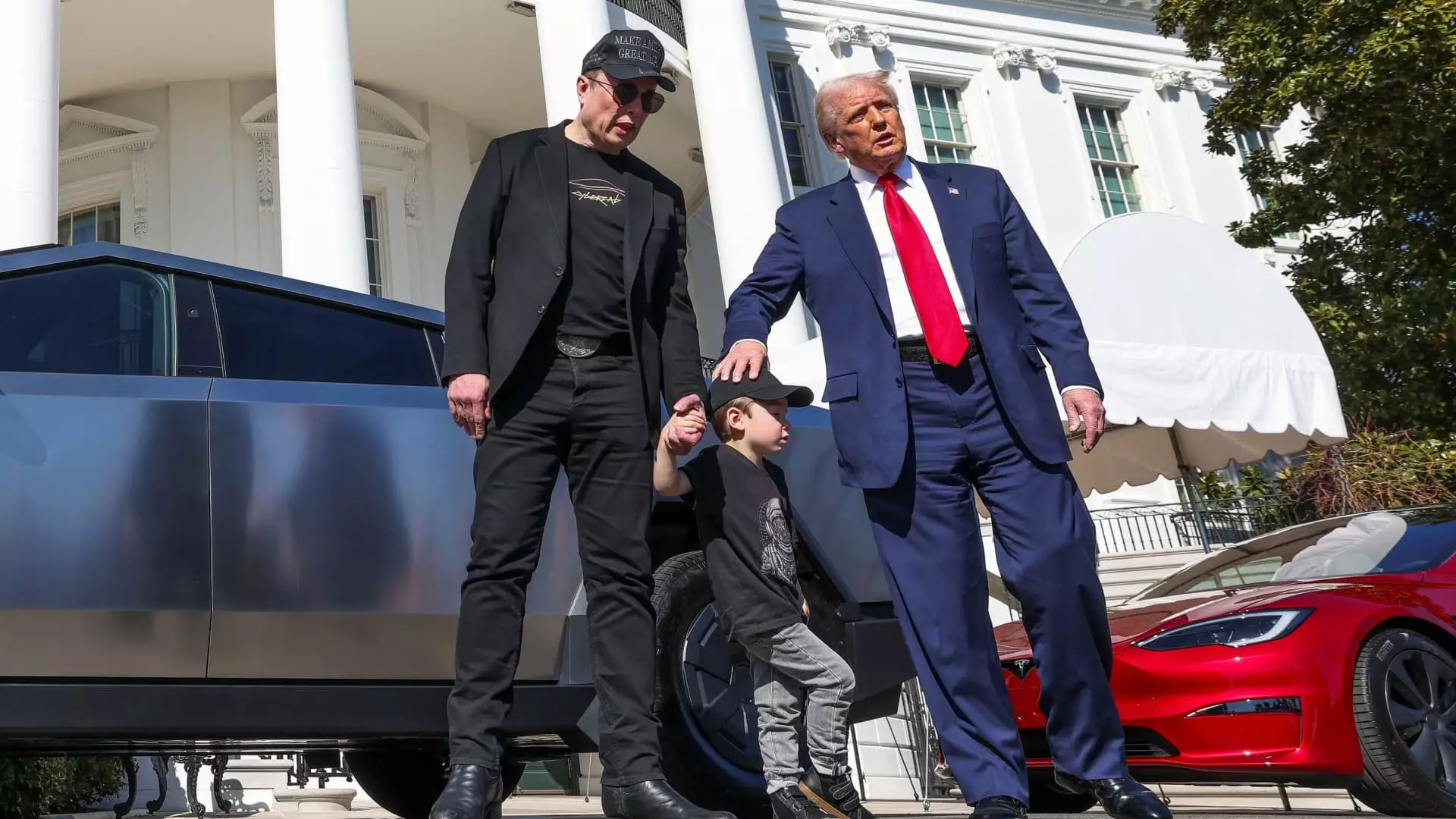Elon Musk, the enigmatic CEO of Tesla and SpaceX, stands at a crossroads where innovation meets the harsh realities of global economics. His recent statements concerning tariffs reveal a tension between his well-known ties to the Trump administration and the complex implications tariffs have for global trade and his companies’ operations. Musk, known for his bold visions of the future, now finds himself articulating a viewpoint that calls for predictability in the economic landscape—one that recognizes how volatile tariffs can derail not only Tesla’s progress but also the broader auto industry in the U.S.
On a recent earnings call, Musk declared his disdain for high or unpredictable tariffs, openly critiquing an economic strategy that is widely viewed as erratic. This ambivalence encapsulates the precarious balancing act faced by business leaders: aligning with political power while also advocating for stable market conditions that foster growth and innovation. Given the unpredictable political climate, Musk’s comments resonate with the concerns of many who fear the impact of aggressive trade policies.
Tesla’s Strategic Advantage Under Siege
Despite the uncertainties, Musk posited that Tesla is better equipped to weather tariff storms due to its localized supply chains across North America, Europe, and China. However, this assertion has a double edge. While Tesla’s localized production provides insulation from some trade barriers, the reality remains that a considerable portion of its components still hails from other countries. Musk himself highlighted the risks involved with the company’s dependency on international suppliers, particularly for critical materials like lithium—which is essential for the batteries powering Tesla’s cars.
Consider the irony: Tesla’s ambitions to revolutionize transportation through cutting-edge technology may be hindered by a political climate favoring isolationist trade policies. As Musk praised Tesla’s vertical integration, he simultaneously acknowledged the complexities of global supply chains. This paradox is emblematic of a broader struggle faced by American manufacturers who are navigating increasingly convoluted international trade waters.
Strained Relations and Painful Truths
Musk’s candid critique of Peter Navarro, Trump’s chief trade adviser, reveals a crucial shift in dialogue. Calling someone “dumber than a sack of bricks” resonates deeply in a world where soundbites reign supreme. This moment underscores how even those who sit at the table of power can find themselves at odds with the very policies they once agreed to support. Musk’s willingness to publicly express dissatisfaction with Navarro’s ideologies serves as an indictment of a trade strategy that many in the business community deem reckless.
On the surface, Musk’s relationship with the Trump administration appears conducive to Tesla’s interests. However, his criticisms suggest a growing rift in perspectives on what constitutes effective trade policy. Musk’s transparent advocacy for lower and more predictable tariffs positions him not just as a businessman but as a reluctant advocate for the broader economic well-being of his industry—stirring the pot in the ongoing debate over the efficacy of protectionist measures.
A Call for Rational Trade
At the heart of Musk’s tirade lies a sensible and pragmatic argument for rational tariff structures. The fact that he describes lower tariffs as beneficial speaks to the broader liberal economic criterion that trade barriers often do more harm than good. The reality is that unpredictable tariffs create an environment of instability that ultimately stifles innovation and hinders the growth of industries crucial to America’s future. Musk’s assertion—whether or not it directly translates into policy change—advocates for a strategic pivot toward freer trade.
While Musk may not singularly dictate the direction of U.S. trade policy, the implications of his statements are significant. They represent a growing discord among business leaders regarding the sustainability of current tariff regimes, which can ultimately lead to an economic reckoning. As the implications of his words sink in, it’s clear that Musk’s perspective could ignite discussions that push for a return to rational economic policies that prioritize growth, sustainability, and competitive resilience. In a world fraught with uncertainty, Musk dares to envision a future marked by openness and collaboration rather than fear and division.


Leave a Reply